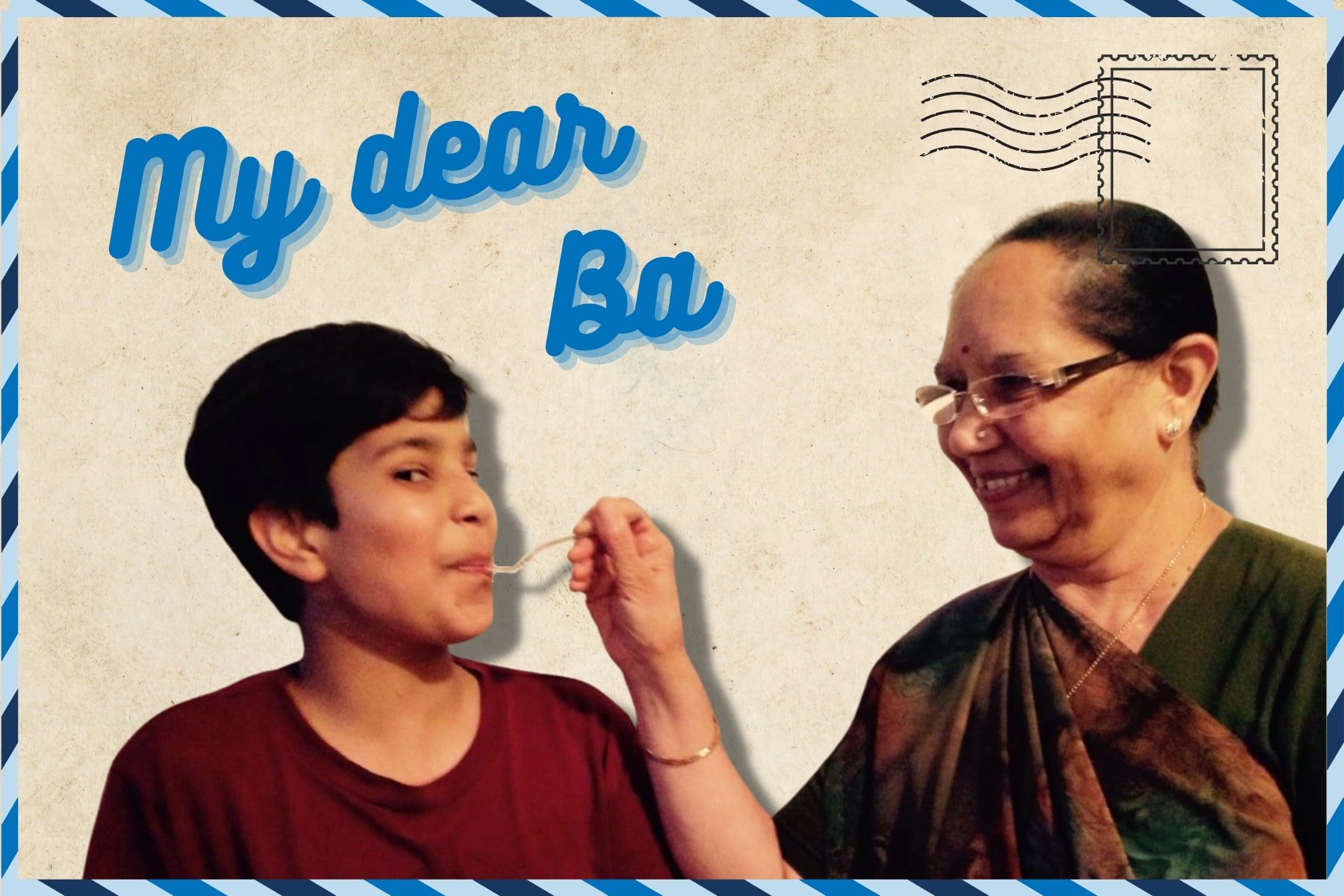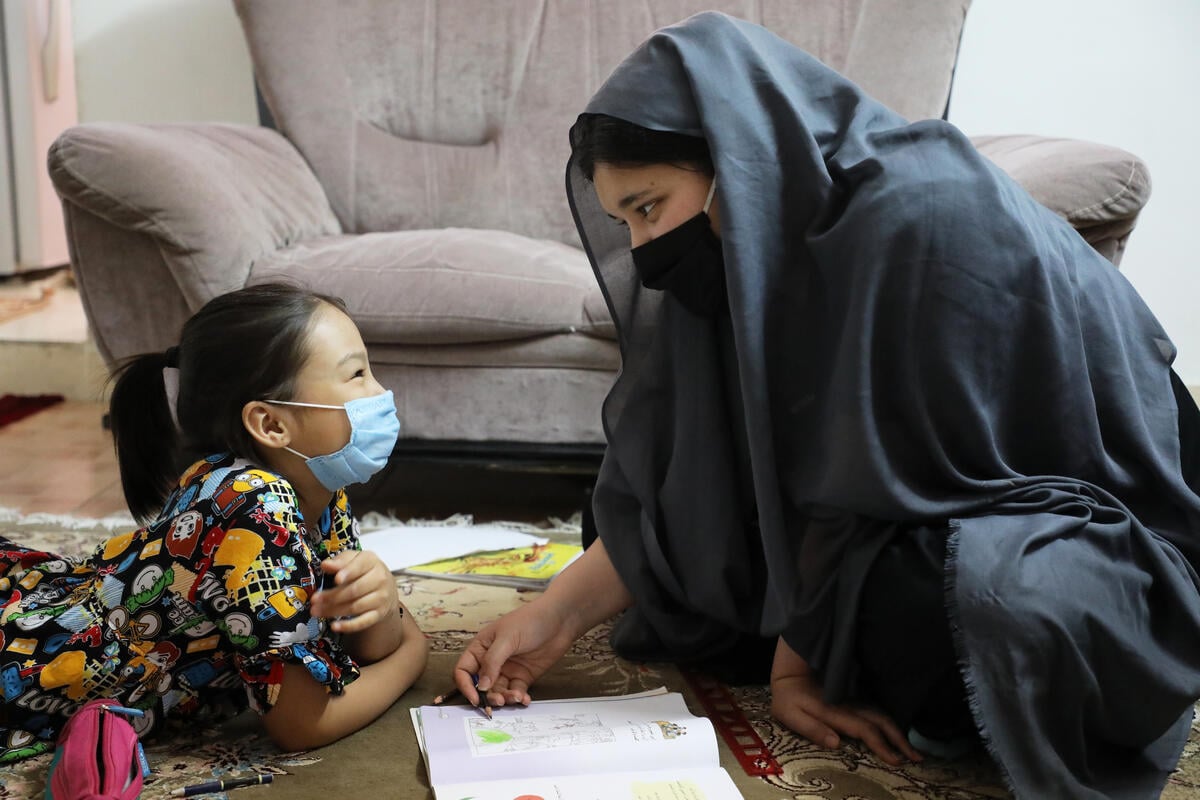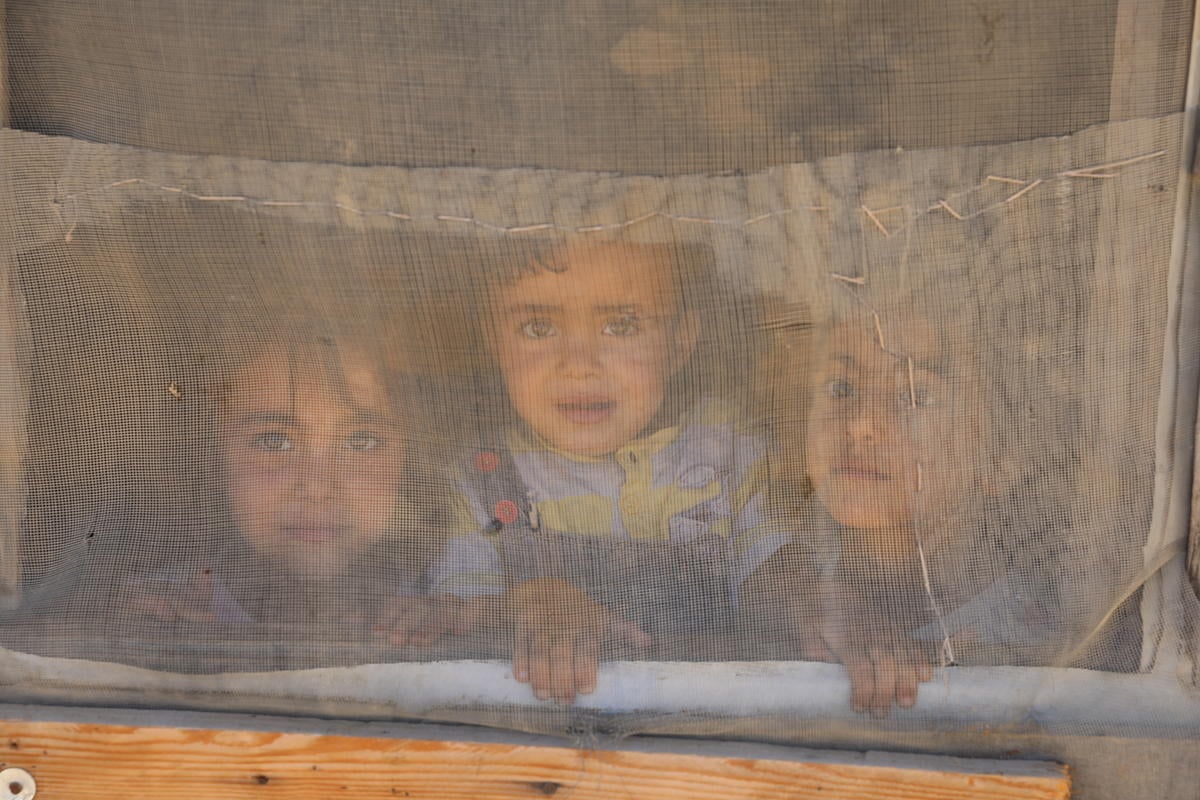1 Refugee Without Hope: Sick Afghan girl gets new Finnish start
1 Refugee Without Hope: Sick Afghan girl gets new Finnish start

TEHRAN, Islamic Republic of Iran, September 28 (UNHCR) - Nine-year-old Fatemeh was whisked off to Finland last Christmas. While other children would have envied her chance to visit the home of Santa Claus, Fatemeh had other priorities - to fight for her life.
The Afghan refugee suffers from what is believed to be a rare congenital epileptic disease that attacks her brain cells. Born to parents who fled Kabul during the Soviet invasion of Afghanistan more than 30 years ago, she grew up in different cities in neighbouring Iran.
She was taken out of school due to her deteriorating health and could not access the special treatment that was needed. Her elder brother, Mohammed, suffered from the same disease and faced similar problems. Life was a struggle as their parents took on odd jobs such as tailoring and construction work to be able to afford the children's treatment.
Believing that 1 Refugee Without Hope is Too Many, UNHCR recommended this family for urgent resettlement to Finland on medical grounds. Unfortunately Mohammed's condition deteriorated quickly and he died just before they left for Finland on December 25 last year. He was only 12.
Nine months later, the family is still mourning him. But Fatemeh's parents are trying to look ahead. They hope their daughter's condition will improve and that she will do well in life.
"She is better now, and is back in school," said her father, Vahid, reached by telephone. "Medical treatment in Finland is very advanced. Fatemeh has made progress and her deterioration has slowed down. In Iran, she would not be able to access this kind of treatment."
Finnish doctors are working to diagnose her disease, failing which she may suffer the same fate as her brother.
In the meantime, Fatemeh is learning Finnish, which she hopes will help her integrate more easily into her new home and allow her to attend school formally.
"I am taking language classes now and have friends from Russia, Taiwan and other countries."
Her parents are also taking language courses to improve their chances of finding jobs in Finland. They would like to pay back their new country for all the generosity it has shown them.
Asked about life in Finland, Vahid said, "It is good. In Iran we were worried about the renewal of our refugee cards and we struggled economically. Here we are not working yet. While receiving a small amount of money to live on, we are eagerly trying to integrate into Finnish society."
This year, UNHCR has secured 1,350 resettlement places for refugees in Iran as part of the agency's efforts to seek durable solutions and share the burden with Iran, which has hosted millions of Afghan refugees in recent decades.
Globally, the UN refugee agency estimates that more than 780,000 vulnerable refugees like Fatemeh need to be resettled to third countries, including some 172,000 this year. However, only about 80,000 places are offered annually by the 22 resettlement countries - meeting less than 10 per cent of the needs.
Fatemeh is one of the lucky few who have been given a chance to start her life anew. "I hope to get better and be a teacher some day," she said.
By Dina Faramarzi in Tehran, Islamic Republic of Iran
1 refugee without hope is too many. Every day, millions of refugees face murder, rape and terror. We believe even 1 is too many.









